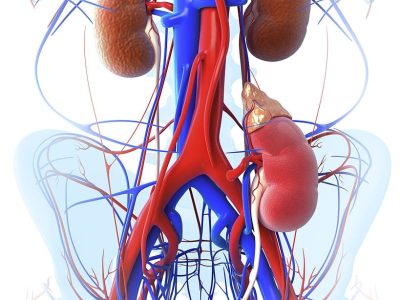Kidney Transplant Surgery
- Home -> Kidney Transplant Surgery
Kidney Transplant Surgery
Kidney transplant surgery, also known as renal transplantation, is a surgical procedure in which a healthy kidney is transplanted into a person with end-stage kidney disease (ESKD) or kidney failure. It is considered the treatment of choice for many individuals whose kidneys are no longer able to function properly and who require long-term dialysis or have limited treatment options. Kidney transplantation offers several advantages over long-term dialysis, including improved quality of life, better survival rates, and reduced dependency on dialysis treatments. However, transplantation is a complex procedure that requires lifelong management and close medical supervision to prevent complications and ensure the long-term success of the transplant.

The kidney used for transplantation can come from two main sources:
Deceased donor: The kidney is obtained from a deceased donor who has chosen to donate their organs or from a donor whose family has given consent for organ donation after their death. The donor kidney is carefully matched with the recipient based on various factors, including blood type, tissue compatibility, and other specific considerations.
Living donor: In some cases, a healthy individual who is willing to donate a kidney can be a living donor. The living donor is typically a family member, friend, or in rare cases, an altruistic donor who voluntarily donates one of their kidneys. Living donor transplantation offers several advantages, including better outcomes and the ability to schedule the transplant in advance.
The kidney transplant surgery typically involves the following steps:
Pre-transplant evaluation: Before the surgery, the recipient undergoes a comprehensive evaluation to assess their overall health, determine their suitability for transplantation, and ensure they are physically and emotionally prepared for the procedure.
Surgery: The transplant surgery is performed under general anesthesia. The surgeon places the new kidney in the lower abdomen and connects the blood vessels of the kidney to the recipient’s blood vessels, ensuring adequate blood flow to the transplanted organ. The surgeon also connects the ureter of the new kidney to the recipient’s bladder, allowing urine to be excreted normally.
Recovery and post-transplant care: After the surgery, the recipient is closely monitored in the hospital for several days to ensure proper functioning of the transplanted kidney and to manage any potential complications. Immunosuppressive medications are prescribed to prevent organ rejection and are typically required for the rest of the recipient’s life. Regular follow-up visits, laboratory tests, and adjustments to medication dosages are part of the post-transplant care to monitor the kidney’s function and overall health.
